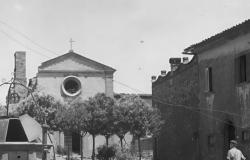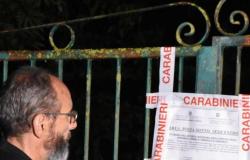In a building like many others, specifically the one which was the subject of a recent ruling by Court of BresciaL’assembly of the owners had decided to solve the complicated problem of parking in the condominium, deciding to transform the common garden area into a parking area for residents’ cars.
Apparently, however, the described initiative was not tolerated by the dissenters who, far from adapting to the will of the majoritycontested the decision and challenged the resolution.
In particular, the Lombard office was responsible for verifying the legitimacy of the provision with precise regard to quorum resolution reached in support of the feared transformation.
On this occasion, in fact, the removal of the flowerbeds and the modification of the surrounding area had been voted by as many condominium owners as capable of representing almost two thirds of the value of the building, i.e. 634.73 thousandths.
The Court of Brescia (sent. n. 2180 of the May 28, 2024) therefore verified the legitimacy of the quorum in relation to the topic voted on, not without missing the opportunity to clarify, in terms of transformation of the communal garden in the car park, what should be the majority to be taken into consideration.
Therefore, all we have to do is delve deeper into every aspect of the topic.
Transformation of a condominium courtyard into a car park: is it an innovation?
According to some jurisprudential decisions, the transformation of a condominium courtyard into a parking lot for residents’ cars does not entail any change in the intended use of the good”the limited transformation of the condominium courtyard into a car park does not entail a change in the intended use – pursuant to of the art. 1117 ter cod. civil – and rather constitutes an innovation that does not conflict with the prohibition of the art. 1120, last paragraph, cod. civil (not causing, in particular, no significant impairment of the enjoyment and use of the common goodand indeed from it deriving an economic valorisation of each housing unit and greater utility for the condominiums” (ex multis Cass. 29.8.2018, n. 21342).
In short, for the aforementioned ruling as well as for some offices of merit (ex multis Court of Rome sentence no. 764 of 19 January 2022), use it as a car parking area courtyard municipality, previously used only for pedestrian passage, does not alter the original function of the property in any way. In essence, therefore, the transformation in question is a simple innovation (ex art. 1120 civil code) and, for this reason, it can be decided with a number of votes that represents the majority of those present and at least two thirds of the value of the building (ex art. 1136 co. 5 civil code).
Transformation of condominium green area into car park: is unanimous consent required?
With the sentence in question, the Court of Brescia, faced with the transformation of a condominium green area into a car park, states that this is a circumstance in which the common good cannot be altered without the unanimous consent of the owners.
The area in question, in fact, in addition to undergoing a radical modification of its original destination, falls into that category of assets for which it is possible, at most, to proceed with a division, but only with the will of all and provided that the operation carried out does not make theuse of the thing to some owner (ex art. 1119 civil code).
In short, exactly the case in question, given that it was a green area, complete with flowerbeds and an irrigation system to be dismantled. It is therefore due to this reasoning that the ascertained majority of 634.73 thousandths was considered insufficient and the request for annulment of the resolution was accepted.
Transformation of the communal garden into a car park.
Transformation of condominium green area into car park: can it be done by majority vote?
In contrast to the sentence in question, we could cite that jurisprudential arrest, not even very old, in which the Supreme Court states that the transformation of the common garden according to the new destination for parking it can take place by majority, in compliance with the dictates of the art. 1120 cod. civil (Cass. ord. n. 10077/2019).
In truth, on this occasion, the Ermellinis were called to resolve a dispute over events prior to the entry into force of the condominium reform.
In any case, on this occasion, while admitting that the transformation in question was radical and entailed the modification of the intended use of the assetthe Court spoke, explicitly, of innovation.
Therefore, with this conclusion, the Court of Cassation has implicitly ruled out that the transformation in question must be decided with the majority referred to in the art. 1117 ter cod. civil (number of votes representing four fifths of the condominium participants and four fifths of the value of the building) or, even, with the unanimous consent of the various owners “Instead, any modification intervention carried out on the common parts of a building or on common systems or things which alters its material entity by carrying out its transformation, or modifies its de facto destinationin the sense that said goods, following the works carried out on them, present objective characteristics, have a material consistency or in any case are used for purposes other than those prior to the intervention, so that the aforementioned works preclude the concrete use of the thing common in a manner compliant with its natural and previous usability (in this sense, see Cass. Section 2, Sentence n.8622 of 08/29/1998, Rv.518497).
These principles, which deserve to be reiterated, allow us to affirm that the transformation of common gardencarried out by demolishing the walls and green areas, leveling the ground and moving the lighting points, according to the new use of the parking area, constitutes an innovation, which as such must be subject to the regime provided for by art. 1120 first and second paragraphs of the Civil Code, in the text in force before the entry into force of Law no. 220 of 11.12.2012, applicable ratione temporis to the case”.






